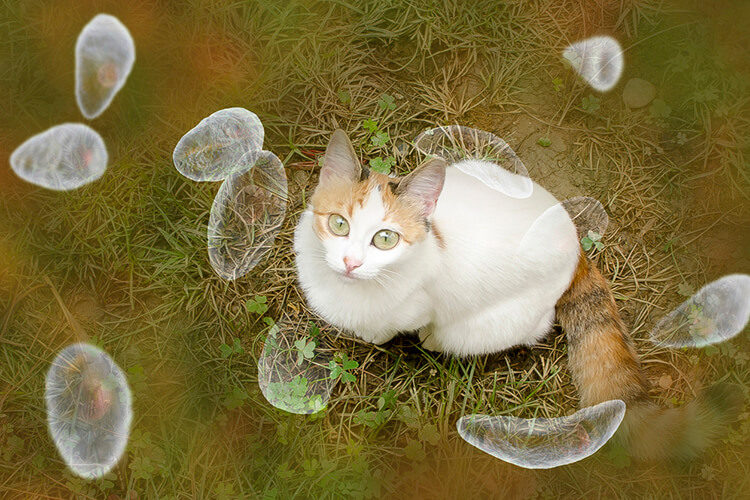It all started with a 2012 story in The Atlantic with the headline “How Your Cat Is Making You Crazy.”
The article introduced a new microscopic boogeyman, Toxoplasma gondii, and explained how Prague-based parasitologist Jaroslav Flegr “began to suspect that a single-celled parasite in the protozoan family was subtly manipulating his personality, causing him to behave in strange, often self-destructive ways And if it was messing with his mind, he reasoned, it was probably doing the same to others.”
So why are we discussing a parasite in a magazine dedicated to the appreciation of cats and the myriad ways our beloved little furballs improve our lives? Cats are, it turns out, an infection vector for Toxoplasma gondii. More accurately, the parasite can be transmitted via cat feces to humans, where it usually lays dormant and has no impact on its human host.
Separating fact from fiction
When I learned that questions concerning Toxoplasma gondii are among the most numerous inquiries from cat owners, I set out to separate fact from fiction. Here’s what I learned:
– A third of the world is already infected. In fact, an estimated 30 percent of Americans are infected with Toxoplasma gondii, according to the Centers for Disease Control. That’s more than 60 million of us. The vast majority of the infected are asymptomatic.
– Cats aren’t the only transmission vector. Toxoplasma gondii can be transmitted by eating undercooked and contaminated meat, the CDC says, especially undercooked pork, lamb and venison. The parasite can also jump to uninfected plates if a meal is prepared using utensils that came into contact with contaminated meat.
– Humans can also become infected via contaminated soil and drinking water.
– Indoor cats are much less likely to contract and pass on the parasite.
– Toxoplasma gondii isn’t actually new, or newly-discovered. It’s the same thing doctors have been warning pregnant women about since the 1920s, and it’s the reason why health professionals advise that moms-to-be avoid coming into contact with cat litter.- Much of the language dealing with Toxoplasma gondii is alarmist. Flegr undoubtedly knows much, much more about parasites than any of us non-experts, but he’s prone to hysterical declarations: “Toxoplasma might even kill as many people as malaria, or at least a million people a year,” Flegr once said. That’s a good story. That’s a story that drives clicks. You can see why it’s irresistible to editors of traffic-driven news sites.
– Causality does not equal correlation: No one has proven Toxoplasma gondii actually causes behavioral changes, and studies have produced mixed results. A 2016 study collected data from more than 1,000 people and concluded there was “little evidence that T. gondii was related to increased risk of psychiatric disorder, poor impulse control, personality aberrations or neurocognitive impairment,” which are foremost among Flegr’s claims. The researchers included a team of scientists from Duke University and the University of Otago in New Zealand, and their research was published in the journal PLOS ONE.
– The studies that prompted the most alarmist responses have not proven Toxoplasma gondii results in adverse behavioral effects — like virtually all research papers, the authors are careful to hedge their assertions with words like “might,” “may,” “could” and “possibly.” The one thing we know at this point is that we don’t know anything for sure. Only more research can bring us closer to definitive answers.
Don’t surrender your cat!
So if you’ve been thinking of dumping your kitty, it’s not Toxoplasma gondii-induced paranoia at work. It’s the result of questionable science reporting by outlets that don’t always differentiate between what’s been suggested and what’s been proven.
Cats bring so much joy to our lives that it would be a shame if people became convinced our cats are “making us crazy,” as that first story claimed. Unless scientists come to a consensus — which will require a lot more research — take the wild stories about Toxoplasma gondii with a grain of salt.






